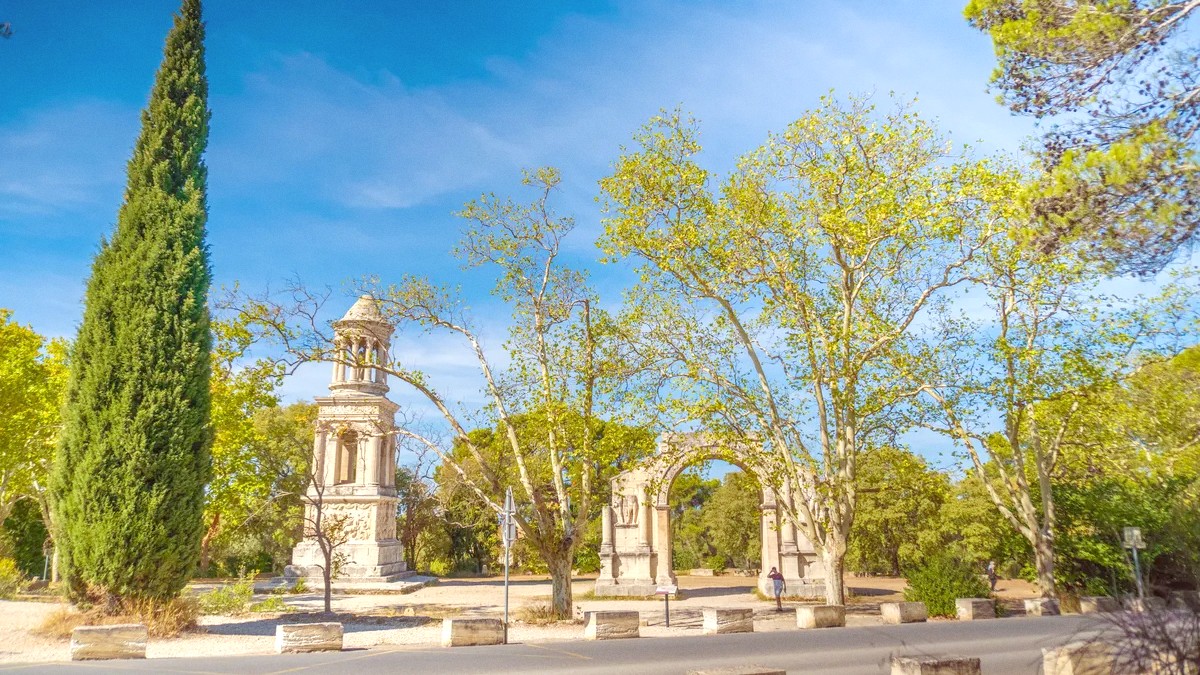
Provence, France
Arles experiences hot, dry summers and mild, wet winters. This climate pattern has distinct seasonal characteristics. Spring (April-May) averages 10-20°C (50-68°F), with increasing sunshine and moderate rainfall. The landscape turns green and wildflowers bloom. Humidity levels are comfortable. Summer (June-August) is the warmest, averaging 20-30°C (68-86°F), frequently exceeding 35°C (95°F). Summers are very dry with minimal precipitation. Humidity is generally low, but heat can be intense. Autumn (September-October) averages 15-25°C (59-77°F), with pleasant weather but increasing rainfall, especially in October. The countryside displays rich autumnal colors. Humidity begins to rise.
Winter (November-March) averages 5-12°C (41-54°F). Winters are mild but can be damp. Rainfall is most common during these months. Humidity is higher than in summer.
The Mistral wind is a distinguished weather phenomenon in Provence. This strong, cold, dry northerly wind often blows through the Rhône Valley, influencing Arles, especially in winter and spring. It makes cooler temperatures feel much colder, bringing a sharp chill to the air.
While it clears the sky and makes visibility excellent, it can also disrupt outdoor activities and make warmer clothing a good idea even on sunny days.
(June-August)
Warm, sunny weather; all attractions and services fully operational.
Crowded, higher prices, intense heat during midday.
(April-May, Sep-Oct)
Pleasant temperatures, fewer crowds, lower prices, ideal for outdoor activities.
Reduced hours in late October, higher chance of rain in autumn.
(November-March)
Fewest crowds, lowest prices, authentic local experience.
Cooler temperatures, higher chance of rain, strong Mistral wind, some services closed.
Plan your visit for July through September to experience Les Rencontres d'Arles. Book accommodation well in advance during this period.
Spring is excellent for birdwatching. Autumn has cooler temperatures for horse riding or cycling. Avoid peak summer heat.
These non-lethal events take place mainly in spring and summer in the Arles Amphitheatre. Check local schedules for dates.
The shoulder seasons are highly suitable for enjoying outdoor pursuits across the region.
During summer, early mornings and late afternoons are best for outdoor activities.
Winter offers a serene, quiet experience with fewer tourists, but be ready for colder temperatures.
Travel costs vary significantly based on your travel style.
The official currency is the Euro (€). ATMs are widely available. Major credit cards (Visa, MasterCard) are widely accepted. American Express acceptance varies. Inform your bank about travel plans. Always select to pay in Euros when given the option at POS or ATMs.
Tipping in France differs from some other countries. A service charge ("service compris") is included in the bill by law at restaurants and cafés, so tipping is not obligatory. However, a small tip is customary for good service.
Arles is generally a safe city for tourists. The crime rate is low, and violent crime against tourists is rare.
While Arles is generally safe, awareness of local natural phenomena is beneficial.
Provence has susceptibility to wildfires during the dry summer months, especially in surrounding natural areas like the Camargue or the Alpilles. Observe local warnings and restrictions regarding access to forests or natural parks, especially during high fire risk periods.
The Rhône River can occasionally have high water levels and localized flooding, especially during heavy rainfall in autumn. However, the city center of Arles has flood protection measures in place.
A comprehensive travel insurance policy is strongly recommended for all travelers. It financial protection against unforeseen events. A good policy should cover: